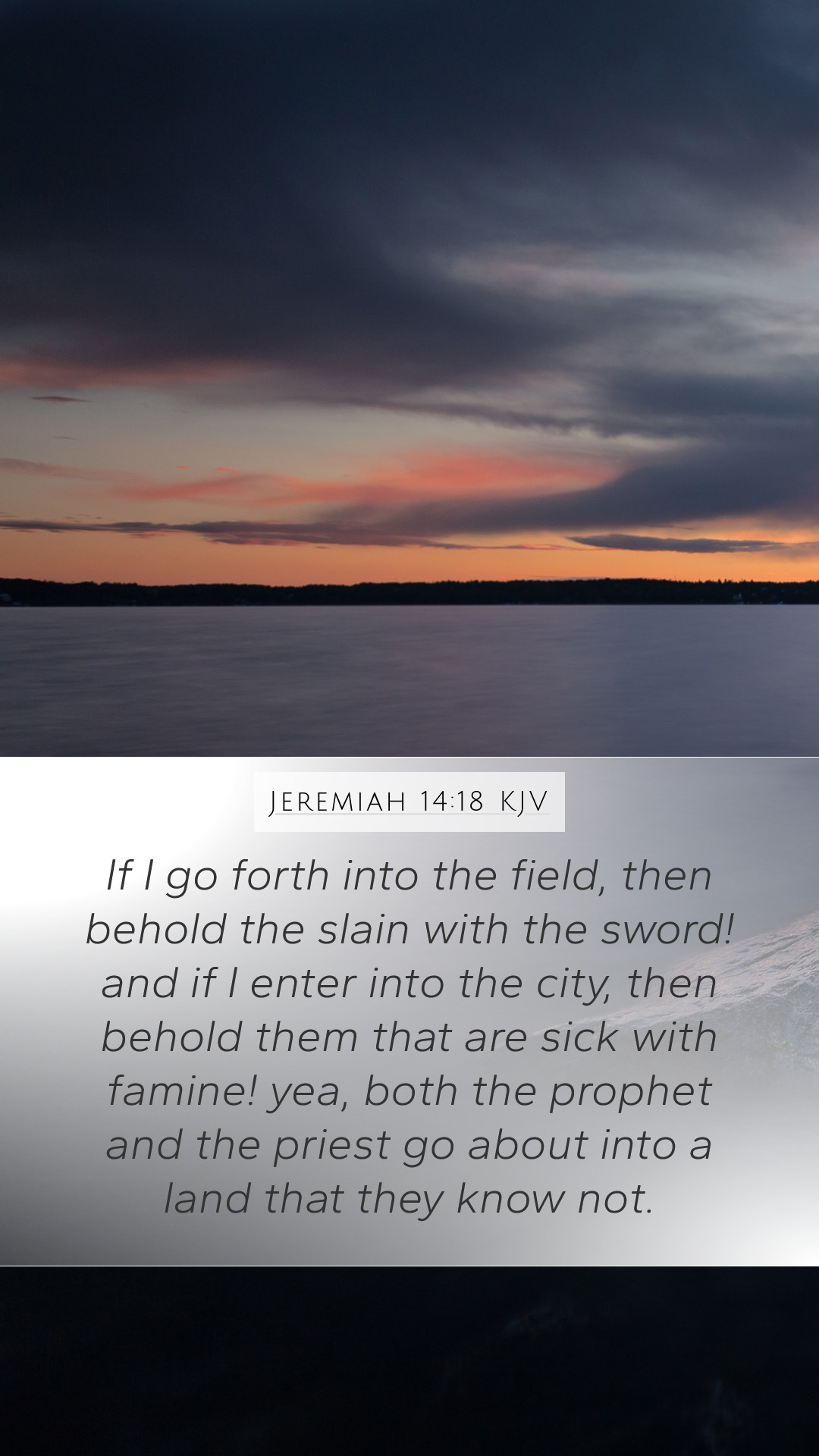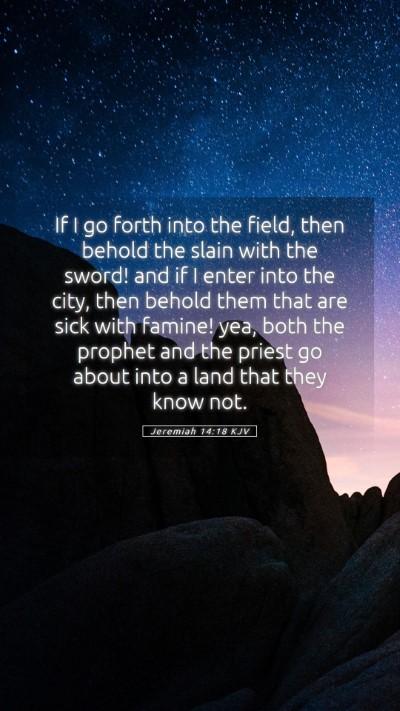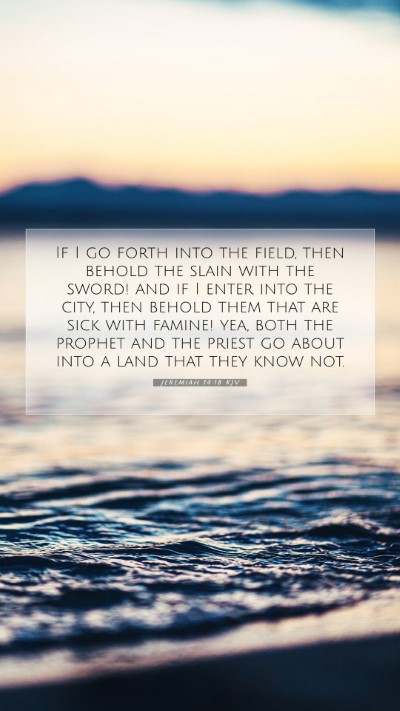Understanding Jeremiah 14:18
Bible Verse: Jeremiah 14:18 - "If I go forth into the field, then behold the slain with the sword! And if I enter into the city, then behold them that are sick with hunger! Yea, both the prophet and the priest go about in a land that they know not."
Meaning and Interpretation
This verse from Jeremiah depicts the dire circumstances faced by the people of Judah, conveying a powerful message about the consequences of sin and the breakdown of society. The prophet Jeremiah is expressing profound grief over the devastation in the land due to judgment and its effects on both the common people and the religious leaders, who appear helpless in the face of disaster.
Contextual Analysis
This prophecy is set against the backdrop of impending judgment as a result of Israel's unfaithfulness to God. The resources available in public domain commentaries provide rich insights into how Jeremiah articulates the catastrophic conditions resulting from divine displeasure.
Insights from Commentaries
- Matthew Henry: Henry emphasizes the tragic reality that the human condition reveals in this verse. He notes that whether Jeremiah goes to the field or the city, death and suffering are rampant, illustrating that the calamity encompasses all aspects of life. It serves as a reflection on the moral and spiritual decline that leads to such outcomes.
- Albert Barnes: Barnes points out that this verse encapsulates the devastation that befalls the innocent and the guilty alike. The reference to both the slain in the field and the hungry in the city highlights the widespread nature of the disaster and the futility of religious practices when they are performed without true repentance and faith.
- Adam Clarke: Clarke elaborates on the idea of the prophet and priest, who represent spiritual authority and guidance, being powerless amid widespread suffering. He stresses that their roles become meaningless in the context of societal collapse, emphasizing the importance of genuine faith and the need for repentance.
Biblical Exegesis
The exegesis of Jeremiah 14:18 reveals several layers of meaning:
- Desolate Field: The field, a symbol of sustenance and life, becomes a place of death, indicating the fruitlessness of their efforts and the severe consequences of disobedience to God.
- City of Hunger: The city represents social systems and community, where the effects of famine illustrate a spiritual famine resulting from neglect of God’s laws and the waywardness of the people.
- Role of Leaders: The mention of prophets and priests signifies the failure of spiritual leadership in guiding the people back to God amidst calamity, reflecting a deeper spiritual crisis.
Application and Relevance
The lessons derived from Jeremiah 14:18 have profound implications for Bible study groups and individual readers today:
- Consider the importance of returning to genuine faith and repentance in times of crisis.
- Recognize the consequences of ignoring spiritual guidance and the moral decline that can ensue.
- Encourage discussions in online Bible study groups on the historical context of such passages and their applications in contemporary society.
Related Bible Cross References
- Lamentations 2:11-12 - Reflects on the devastation in Jerusalem.
- Ezekiel 4:16-17 - Highlights famine as a consequence of sin.
- Hosea 4:6 - Describes the perishing lack of knowledge among the people.
Conclusion
In summary, Jeremiah 14:18 urges believers to engage in earnest Bible study and to reflect on their personal spiritual conditions. Through careful analysis and application, we can appreciate the depth of meaning in Scripture and its implications for our lives today. Understanding such verses not only enriches our personal faith but also equips us to guide others in their spiritual journey, turning to the Bible for answers in times of need.


